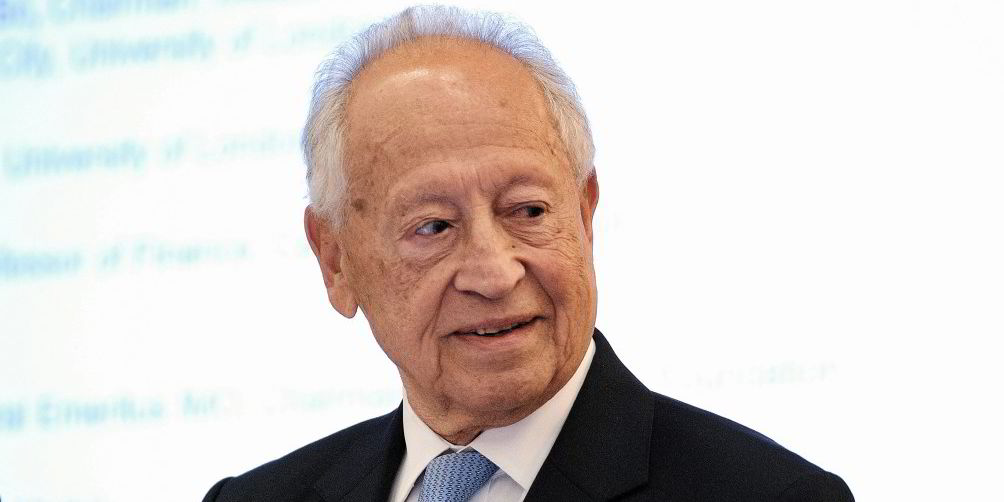London Greeks’ shipping lobby expressed its frustration on Thursday as proposals to set up a maritime decarbonisation research fund seemingly reach a dead end.
The International Monetary Organization’s Marine Environment Protection Committee “didn’t help the debate by refusing to set up a dedicated research and development fund”, said Haralambos J Fafalios, who is chairman of the Greek Shipping Co-operation Committee (GSCC).
Failure to back the fund means any proceeds from a carbon tax imposed on ships will now most likely be gobbled up by governments rather than addressing the industry’s decarbonisation needs, Fafalios told the group’s annual general assembly.
“Whether it’s adopted or not, a fuel levy is still the most equitable and logical way to achieve decarbonisation, and not such measures such as EEXI, CII or the EU ETS,” he insisted, referring to the Energy Efficiency Existing Ship Index, the Carbon Intensity Indicator and the European Union’s emissions trading system.
Fafalios also reiterated shipowners’ criticism of charterers’ role in decarbonisation debate and practice.
“Charterers cannot tout their green credentials when they regularly instruct ships to proceed at maximum speeds, only to arrive at load or discharge ports and wait for a prolonged period of time,” he said.
Shipyards came in for criticism as well: “Shipbuilders refuse to come up with vessels with better hull lines and greater hydrodynamic efficiency — the above could easily bring savings above 20% over existing hull designs.”
Praising Ukrainian citizens’ bravery in fighting “the mighty Russian army”, Fafalios implored Moscow to unblock ships trapped in Ukraine and guarantee safe sea lanes when Black Sea ports eventually reopen.
“Safe from sea mines is the most important goal,” he said.
The only positive thing the GSCC head sees for shipping from the Ukraine crisis is that the disrupted Black Sea trade, which has traditionally been a short-haul business, is now being replaced by more profitable long-haul routes.
For all the improvement in dry bulk freight rates, however, this market still “suffers too much from forward freight agreement-induced volatility and a large fleet that could easily become oversupplied if the orderbook gets any bigger”, he warned.
The GSCC was set to elect a new board on Thursday. Fafalios, who stood for re-election to the board, has been chairman since 2010.
Two veterans are leaving the organisation after having served it for decades — former IMO secretary general Efthymios Mitropoulos and Stathes Kulukundis of Rethymnis & Kulukundis, who has been with the committee for more than 40 years.
“We shall miss them both,” Fafalios said.



